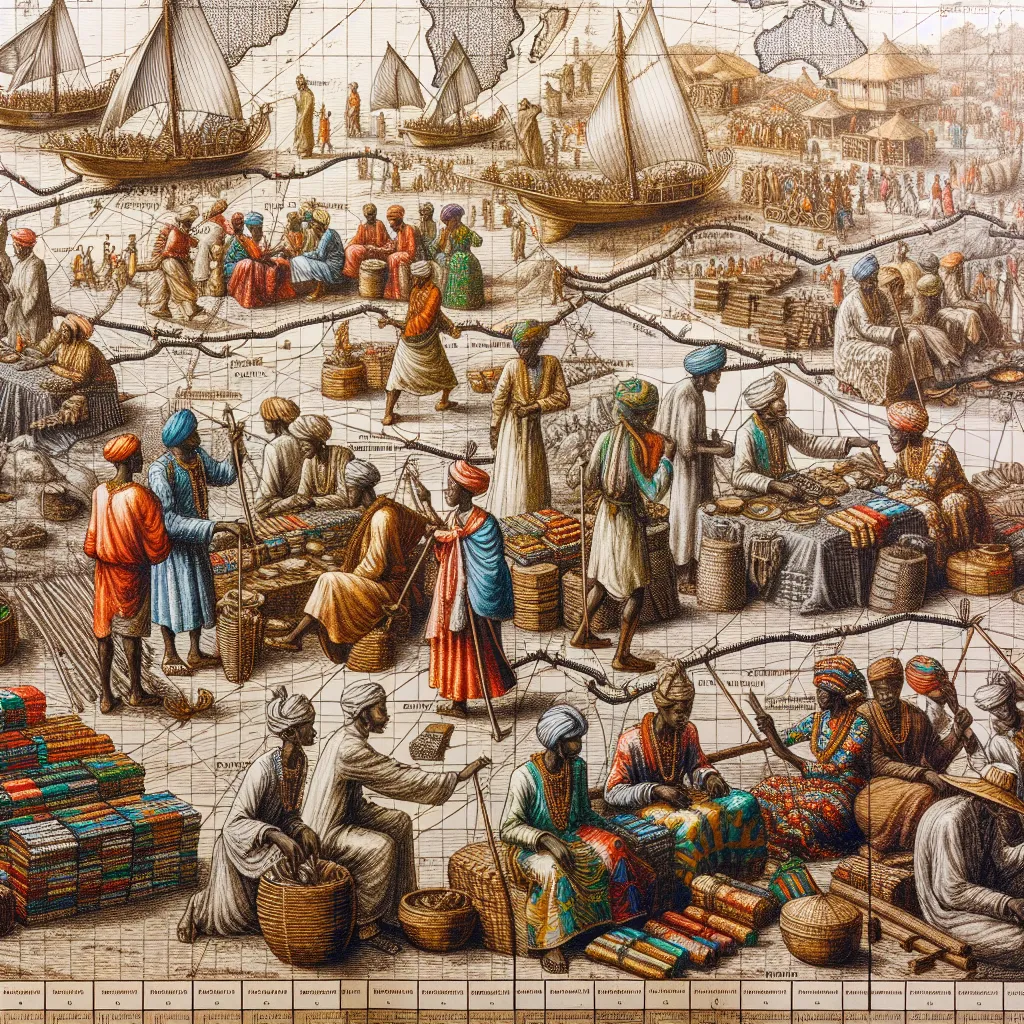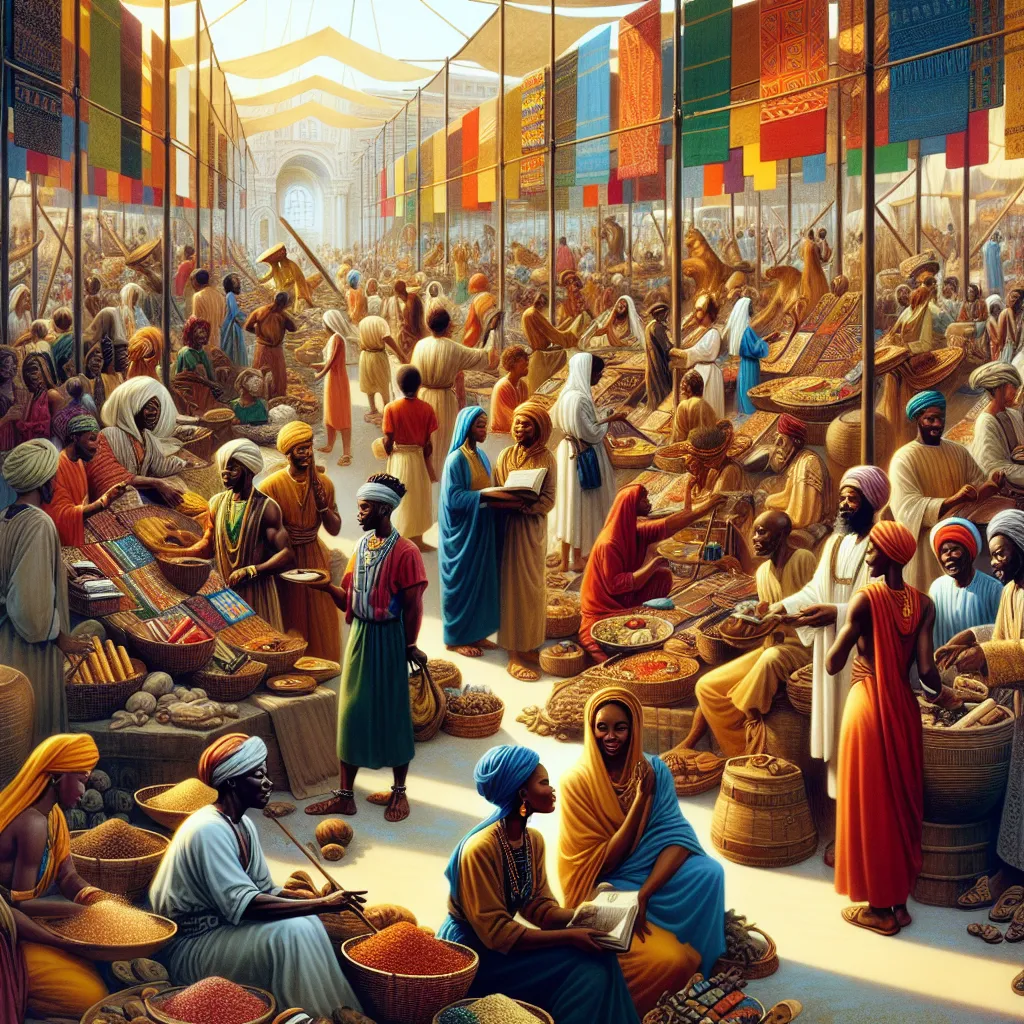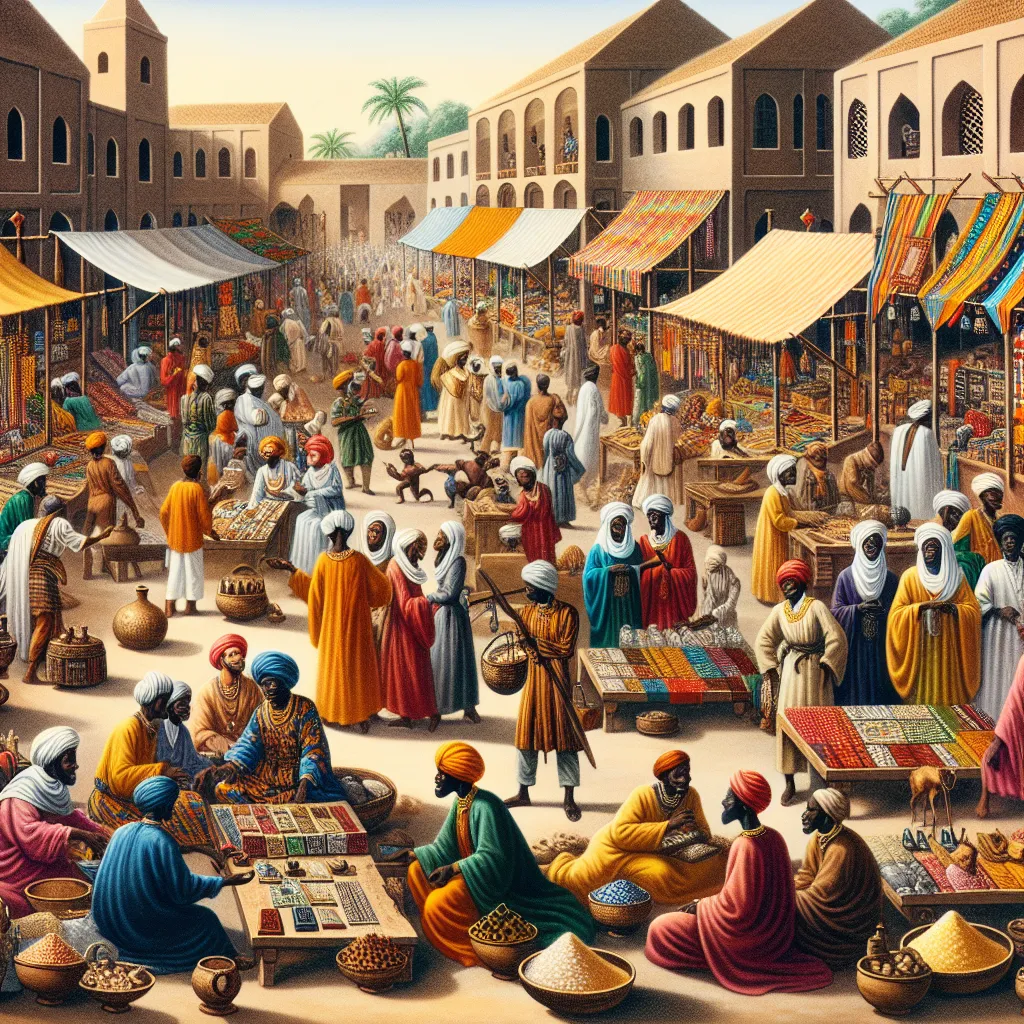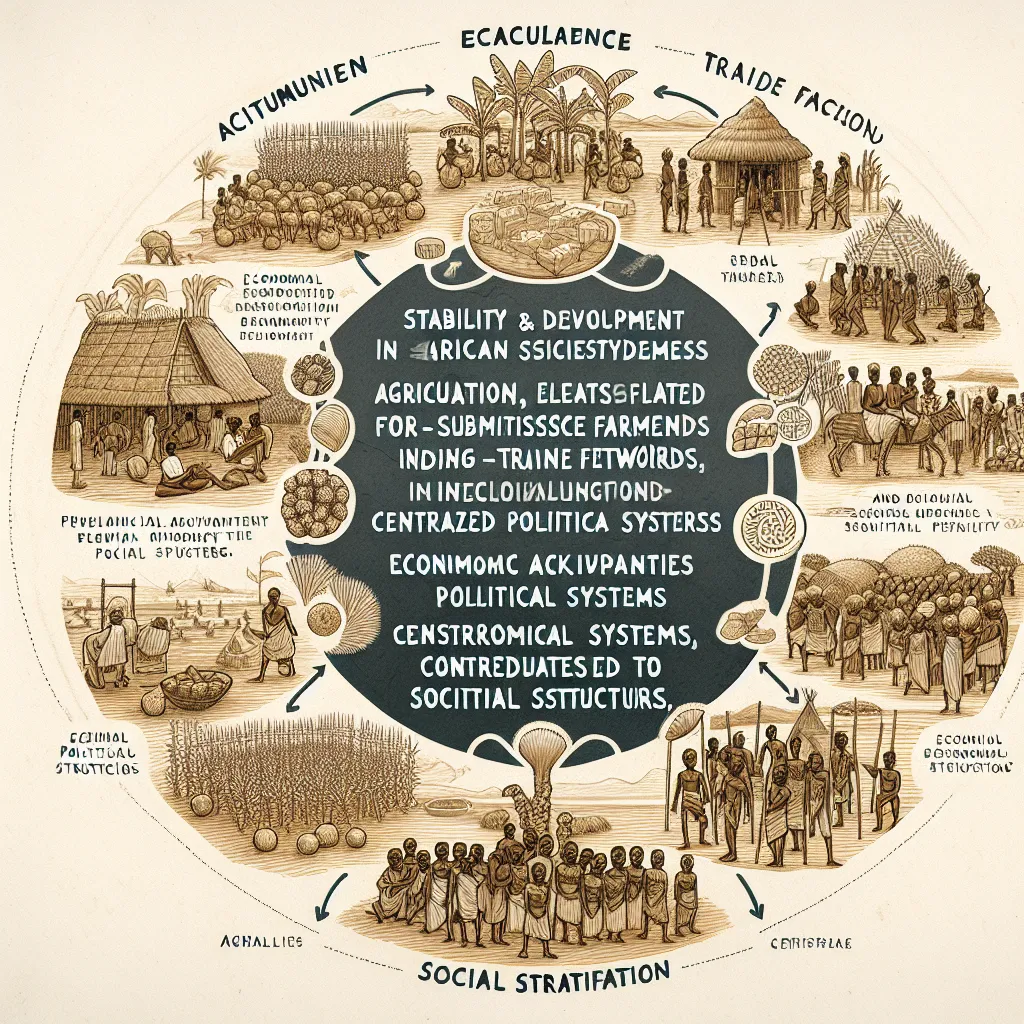Ask AI on The Internet
Question: Examine the economic systems of pre-colonial African societies, and discuss how they contributed to the overall stability and development of these societies. Mostly focusing on trade, with references and citations
Pre-colonial African societies displayed diverse and sophisticated economic systems characterized by trade, agriculture, and artisanal production. The primary underpinning of stability and development in these societies often revolved around the efficient and extensive trading networks, which facilitated not only economic exchange but also cultural and technological diffusion. Here, we will explore how these economic systems contributed to the overall stability and development of pre-colonial African societies, with a particular focus on trade. ### 1. Diverse Economic Structures Pre-colonial Africa was not monolithic; it encompassed various economic structures suited to different ecological zones — from pastoralism in the arid Sahara, to agrarian systems in the West African savannas, to mixed economies in the East African coast. These different systems were interconnected through trade networks that ensured the flow of goods, resources, and innovations across the continent. ### 2. Trans-Saharan Trade The trans-Saharan trade routes are perhaps the most well-documented pre-colonial African trade networks. Commodities such as gold, salt, cloth, slaves, and ivory were exchanged between West Africa and North Africa, linking the sub-Saharan interior with Mediterranean economies. - **Gold-Salt Trade:** West African empires like Ghana, Mali, and Songhai grew immensely wealthy and influential through their control of gold production and trade, which they exchanged for North African salt — an essential commodity for both dietary and preservation needs (Lang, 1993). These empires used their wealth to build strong centralized states, finance armies, and foster urban growth. - **Cultural Exchange:** These trade routes also facilitated the spread of ideas, religion (notably Islam), and technology, which led to societal advancements and greater regional coherence (Levtzion & Hopkins, 2000). ### 3. Indian Ocean Trade On the eastern coast of Africa, the Swahili city-states — such as Kilwa, Zanzibar, and Mombasa — were integral players in the Indian Ocean trade network. These societies traded extensively with Arabia, Persia, India, and later China. Significant exports included gold, ivory, iron, and slaves, while imports comprised textiles, beads, and pottery. - **Economic Prosperity:** The wealth generated from these trade networks allowed Swahili city-states to develop highly sophisticated urban centers with impressive architecture, such as stone mosques and houses (Allen, 1993). - **Cultural Synthesis:** The contact with various cultures led to a unique Afro-Arab cultural synthesis evident in language (Swahili), religion (Islam), and art (Horton & Middleton, 2000). ### 4. Internal Trade Networks Inland, there were extensive local and regional trade systems. For instance, the Great Zimbabwe and Mapungubwe kingdoms in Southern Africa were key players in regional trade, dealing in gold and cattle, which they traded for exotic goods like glass beads from India (Pwiti, 1997). - **State Formation:** The control of trade routes and resources contributed to the rise and stability of these powerful kingdoms, fostering political centralization, social stratification, and monumental architecture. - **Economic Integration:** Regional specialization and trade fostered economic integration and interdependence, promoting peace and cooperation among neighboring entities. ### Implications for Stability and Development 1. **Wealth and Prosperity:** The influx of wealth from trade enabled these societies to support large populations, maintain standing armies, and develop complex social and political institutions (McIntosh, 1998). 2. **Urbanization:** Trade-based wealth facilitated urbanization. Major trading cities became hubs of administrative, economic, and cultural activity, contributing to societal advancements (Insoll, 2003). 3. **Technological and Cultural Exchanges:** Trade networks were conduits for the exchange of technologies (e.g., ironworking techniques) and cultural practices, promoting societal development (Smith, 1980). ### Conclusion The economic systems of pre-colonial African societies were robust and multifaceted, heavily reliant on extensive trade networks. These systems not only provided material wealth but also promoted cultural and technological exchanges that contributed to the overall stability and development of these societies. Understanding these dynamics offers valuable insight into the complexity and resilience of pre-colonial African civilizations. **References:** - Allen, J. de. V. (1993). *Swahili Origins: Swahili Culture and the Shungwaya Phenomenon*. James Currey. - Horton, M., & Middleton, J. (2000). *The Swahili: The Social Landscape of a Mercantile Society*. Blackwell. - Insoll, T. (2003). *The Archaeology of Islam in Sub-Saharan Africa*. Cambridge University Press. - Lang, J. (1993). *Africa from the Twelfth to the Sixteenth Century*. UNESCO. - Levtzion, N., & Hopkins, J. F. P. (2000). *Corpus of Early Arabic Sources for West African History*. Markus Wiener Publishers. - McIntosh, S. K. (1998). *Beyond Chiefdoms: Pathways to Complexity in Africa*. Cambridge University Press. - Pwiti, G. (1997). *Dating and Chronology in the Archaeology of Zimbabwe*. Oxbow Books. - Smith, R. S. (1980). *Warfare & Diplomacy in Pre-colonial West Africa*. University of Wisconsin Press.
Think your answer is better than the AI's? Post it below.
Question Tags
If you want your question answered by an AI, click here.







Post your own comment: